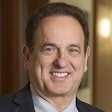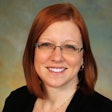
Feeling burned out? It could be because you're working in a big, anonymous healthcare system. Doctors who worked in small primary care practices reported much lower burnout rates in a study published in the July-August issue of the Journal of the American Board of Family Medicine.
Physicians in small practices had a burnout rate of 13.5% -- sharply lower than the national average of 54.4%, according to a group led by senior author Dr. Donna Shelley from NYU Langone Health. The researchers believe the difference is due to the independence and autonomy found in smaller practices, which could offer protection against burnout symptoms (J Am Board Fam Med, July-August 2018, Vol. 31:4, pp. 529-536).
Shelley and colleagues surveyed 235 physicians practicing at 174 small primary care practices in New York City as part of the HealthyHearts NYC trial. The study is funded by the U.S. Agency for Healthcare Research and Quality and is designed to show how practice coaching can help smaller facilities adopt clinical guidelines for diagnosing and treating heart disease.
Respondents to the survey answered questions designed to indicate their burnout levels. Choices ranged from no symptoms of burnout to feeling completing burned out and questioning whether to continue practicing medicine.
The participants were also asked about their practice's culture, such as whether they have opportunities for growth and the chance to learn from mistakes by talking and listening to each other. Survey respondents who had this kind of culture in their practice reported lower levels of burnout, the researchers found.
Previous studies have found that lower burnout rates were associated with a perception of greater autonomy, a culture of quality and safety at work, effective coping skills, and less work-life conflict, according to the group.
Shelley noted that being a physician in a solo or small practice can have challenges, though. While burnout rates may be lower, these practices are often struggling financially, and many practitioners are on call much of the time.
"The hope is that our research can inform ways for larger systems to foster autonomy within practices so that there is space to carve out a work environment that is aligned with doctors' needs, values, and competencies," she said in a statement.



















